Ko Tun Aung was gazing at the heavy rain and muttering “The rain came early this year”. His muttering voice disappeared with the sound of the rain hitting the zinc plate roof.
.
Kalaw is a town which produces domestic vegetables, fruits, and flowers, and they are distributed and sold all over Myanmar just like Aungban (Aungpan) town where it is also well-known for its vegetables and fruits wholesalers and distributors. Kalaw township is located in Southern Shan State, Taunggyi District.
Even though it is beautiful to see the light green cabbage farms on the red fertile soil in Heho region, Kalaw township, Ko Tun Aung who planted three acres of cabbage is full of worries.
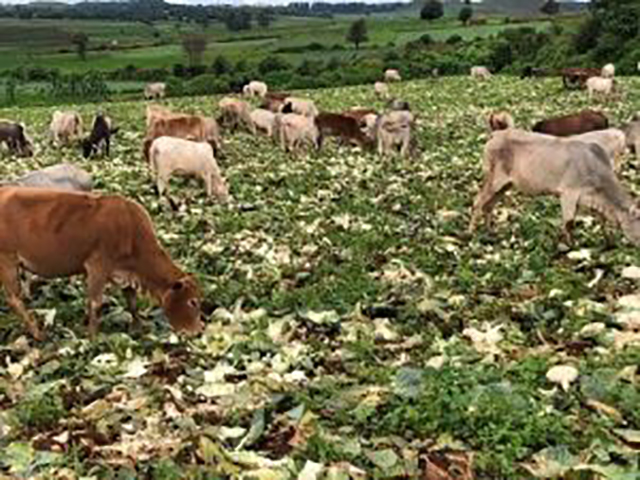
“There are no cabbage buyers these days. Even though we give it for free, there is no person who would take it. The price of one cabbage is only 100 Kyat now, so it is at a loss to harvest them because of the labor and transportation cost,” Ko Tun Aung told SHAN.
The farmers have been suffering two consecutive years because of the Covid-19 pandemic and the military coup in 2021. The increase in the gas and fertilizer price and the lack of demand for the crops make it harder for the farmers to survive. Most farmers are reluctant to invest in the farm this year.
“Even though we were at loss during Covid-19 pandemic, there was support from the government like loans and other support. The price of the gas and fertilizer were still manageable that time, and the overall investment was manageable. However, the price of gas and fertilizer went up five times, and if there is no demand for the crops like these days, we are doomed,” Ko Tun Aung explained about the situation farmers are in right now.
He also added that in order to plant one acre of cabbage, it costs about 1.5 million Myanmar Kyat – breaking it down into about 5 bags of fertilizers, 35 gallons of gas, some pesticide, the plowing cost, and other labor cost. It takes about three months for him to work on the farm until its harvest, and he is not getting back any penny.
Due to Covid-19 pandemic and political instability in 2019-2020, farmers were at a loss of 500,000 Myanmar Kyat per acre of land, and they are losing about 1.5 million Myanmar Kyat per acre of land these days.
“I do not know yet what to plant this year, but I have to grow something. There is no demand for the raw material fresh produce, the same goes for flower growers – they are not break-even. Garlic and potato farmers are doing just fine. We bought the fertilizers and pesticide on credit, and they have not been cleared yet. So, I am not sure if I can buy those on credit again,” Ko Tun Aung added.
There is no demand for the fresh produce crops; however, the price of the basic food like rice and cooking oil are skyrocketing. Meanwhile, the minimum wage for the daily workers is still the same, and there is no job for everyone these days according to Daw Aye Aye Aung who lives in Pone Inn village.
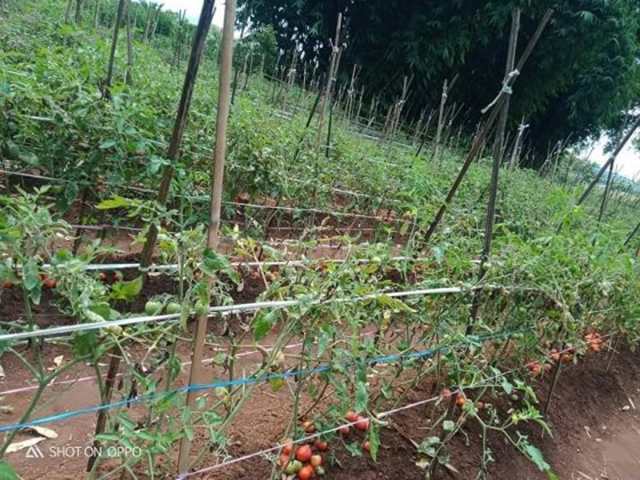
“In the past, the wage for daily workers was 5,000 Myanmar Kyat, and it is still 5,000 Kyat. Workers had jobs everyday in the past, but not anymore. 5,000 Kyat could buy about two kilos of rice, a bottle of cooking oil, and some others, but a bottle of cooking oil is over 4,000 Kyat now,” Daw Aye Aye Aung explained about the current situation.
According to a vegetable wholesaler from Aungban, the current situation occurred because of the mismanagement of the military government, and due to the fluctuation and inflation in gas prices, the transportation cost has increased. Overall, the general high inflation has caused the dive in purchasing power in big cities like Yangon.
“The blackout and the increase in gas price reduced the overall productivity. Due to the fluctuation in gas price, the transportation cost increased. There is no purchasing power in Yangon anymore, the brokers made no orders. The order is so tiny that we transport it with a small truck but the cost is very expensive,” the above wholesaler who is based in Aungban told SHAN.
Overall, a cabbage costs about 300 Myanmar Kyat in order to reach Yangon.
According to the analysis from the above businessman, currently, there is very tiny demand for the vegetables such as cabbage, white mustard, and tomato. The price of exporting those vegetables from Chin State to India is only 100-500 Kyat per kilo and there is a limitation quota; therefore, it is not profitable for the farmers. As a result, farmers are considering reducing the productivity for next year’s harvest which could lead to a shortage of food supplies next winter.
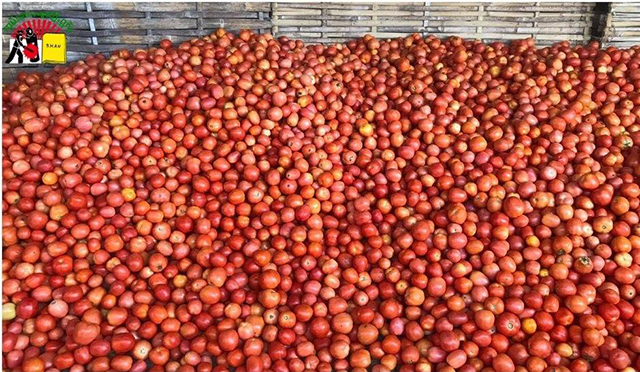
Moreover, the authorities are turning a blind eye to gambling and illicit drugs in the community as if they are legal. Young people are now becoming gamblers and addicts, and illicit drugs can be bought easily in almost every village.
As farmers no longer make profit, they are considering reducing the farmland so that it is enough to feed their family only. Therefore, they no longer hire additional daily workers, leading to the increased unemployment of daily workers. As a result, there could be insufficient food supplies locally according to a agriculture materials distributor, U Aung Tun.
“The situation is very bad, we cannot leave anything in the farm such as irrigation pipes. If we leave our truck in the farm, its battery will get stolen, its gas tank will get empty – they even steal the flowers we grow. I have never seen such a situation before or heard of it before in our region,” U Aung Tun quoted.
Currently, the military government has ordered universities to resume, and there are over two thousand students attending the university in Taunggyi University. Due to the widespread of gambling and illicit drugs, plus the occasional accusation of students being part of the PDF forces by the military junta, parents are having a hard time sending their children to school in the long run.
“Both of my son and daughter are students at Taunggyi University. As they are free now, they work as a daily worker, but it is only enough for our daily meal. We lost three consecutive harvests from our farms, so it is not possible to send them back to school now. Their friends are already at school, so they also would like to join their friends,” Daw Aye Aye Aung expressed her family difficulties to SHAN.
However, a university student from the Heho region said that they are now unitedly resisting the current military regime, and it does not mean that those who are resuming their studies are against them. And that there are young people in the Heho region who are practically trying to accomplish their duties.
“There will be some who are resuming their studies, some who went to Thailand to work, and there are still many young people who are resisting this military regime. Regardless of any situation, we young people will not be divided, and we are doing our own duties respectively,” the above university student from Heho told SHAN.
According to a wholesale business owner from Aung Pan, Ko Aung, as the demand for the fresh produce crops are decreasing, young people are jobless. Like in the past, job marchers are coming to the village to convince young people to go and work in the neighboring country, Thailand. Many have been scammed, and many have been arrested at the Thai-Myanmar border while trying to cross the border illegally.
He also analyzed that if the price of the gas will continue increasing and if they are sold with limitations, it would lead to the increase of other prices such as fertilizers, pesticides, and other consumer products. This would have a huge impact on the future life of farmers and the local young people.





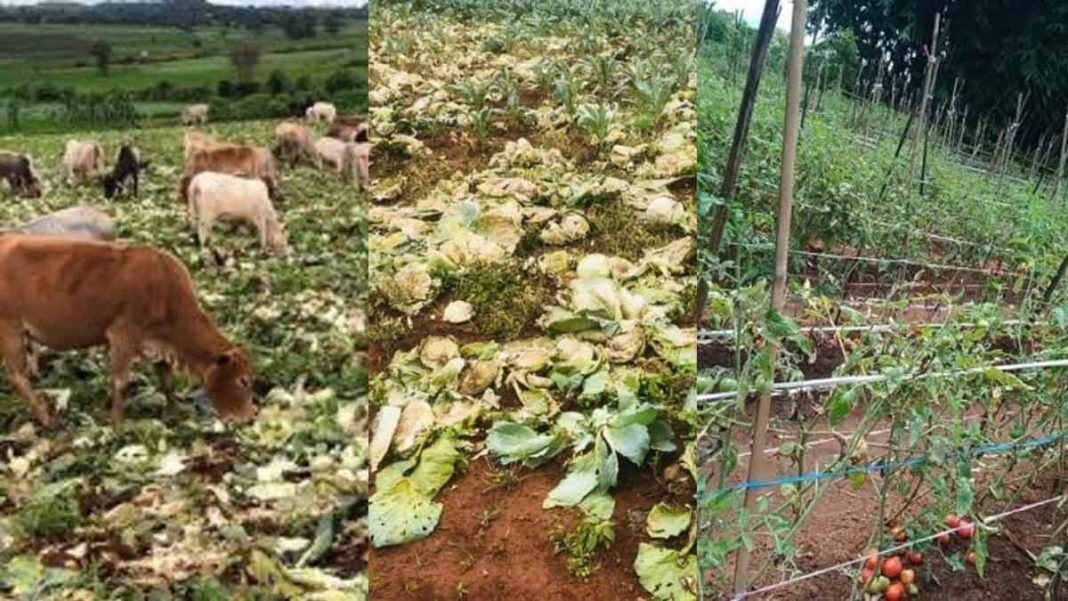
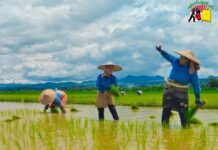

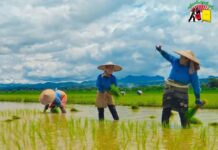
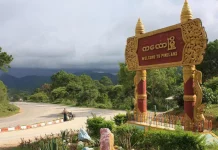
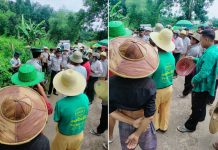






Leave a Comments